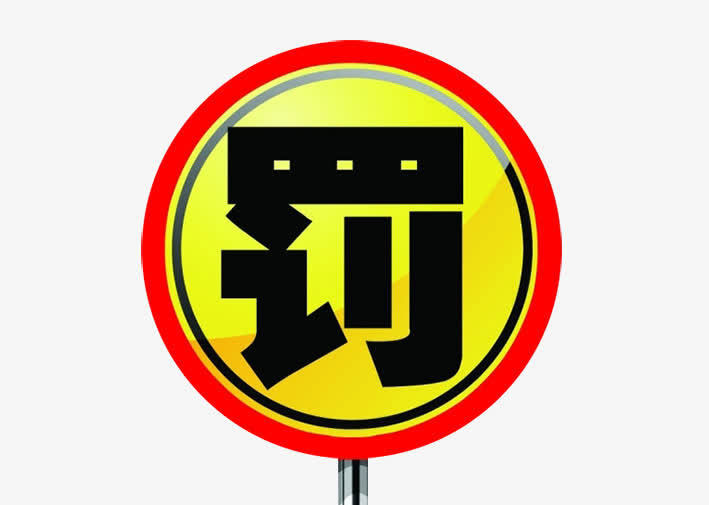
时代周刊:教皇究竟就安全套发表了什么言论?
本笃十六世在使用安全套问题上的所谓妥协并不是一个巨大的让步,他仍对使用安全套来达到避孕目的持排斥态度(正如他在避孕药的立场一样)。他所举的一个男妓选择使用安全套以有意识地避免HIV传播的具体例子被形容为是“向道德化方向迈出的第一步,是走上恢复人们有关不是所有的事情都被允许的、一个人不应该为所欲为的意识之路。”
从普遍使用安全套和其他避孕药到防止艾滋传播的想法,再到遵守天主教教堂教义,本笃十六世重申,安全套不是最终解决方案也不是天主教给出的方法,虽然他认为教会对于阻止人们获得安全套方面无能为力。不过,他仍坚持称:“只关注安全套暗示着性的平庸化,这是一种不再视性为爱的危险态度的源头。”
本笃十六世有关安全套的言论是新书《世界之光:教皇,教会和时代信号》的一部分。教皇对泽瓦尔德的提问给出了坦率和个人化的答复。本笃十六世承认,他在2009年的一次新闻发布会上被一个记者有关天主教会应对艾滋的方法“不现实和无效”的指责“激怒”。他当时回答那一问题时称,世界各地的宗教组织在“治疗艾滋病人,尤其是在患艾滋病的儿童方面作了大量的工作”。他称:“教会在这方面所作的工作要比任何人都要多。我坚持这一观点。”
What the Pope Really Said About Condoms
The headline around the world was that the Pope was finally allowing the use of condoms in certain circumstances. The news came after an Italian newspaper broke an embargo on a book-length interview with Benedict XVI by the German journalist Peter Seewald, perhaps the only popular interlocutor whom the Pontiff, in his previous role as a Cardinal, has cooperated with on such a scale。
Benedict's so-called condom concession was not a huge one. He still proscribes the use of condoms as contraception (as he does the birth control pill). His specific example, that of a male prostitute choosing to use a condom in a conscious choice to prevent HIV infection, is couched as "a first step in the direction of moralization, a first assumption of responsibility, on the way toward recovering an awareness that not everything is allowed and that one cannot do whatever one wants." Benedict seems to imply a scale of good and bad intentions — from the indiscriminate use of condoms and other contraceptives to the idea of preventing the spread of AIDS to following the teachings of the Catholic Church. Condoms are not the ultimate solution or the prescribed Catholic way, he reiterates, though Benedict allows that there is little the church can do to prevent anyone from acquiring condoms. Still, he insists that "the sheer fixation on the condom implies a banalization of sexuality... the dangerous source of the attitude of no longer seeing sexuality as the expression of love."
Benedict's statement about condoms is part of Light of the World: The Pope, the Church, and the Sign of the Times, Seewald's far-ranging six-hour interview to be published by Ignatius Press. The Pope supplies often frank and personal responses. Indeed, Benedict admits that he was "provoked" by a reporter's question during a 2009 press conference that called the Catholic Church's approach to AIDS "unrealistic and ineffective." He responded to the question by defending the enormous amount of work done by religious organizations worldwide in treating "AIDS victims, especially children with AIDS." "The Church does more than anyone else," he told Seewald. "And I stand by that claim."
(See the trial of Benedict XVI。)
Seewald and the Pope discuss numerous subjects, from the church child abuse scandal to homosexuality to papal retirements to the Book of Revelation. For the most part, Benedict is surprisingly open though unsurprisingly wedded to orthodoxy, even as he defends it spiritedly. At times, he is almost relativistic, preferring to read the Bible in symbolic ways rather than with a hard-edged literalism. For example, while he says that Christians must always look forward to the coming of Christ, it must be in a continuously spiritual way; and that a believer must not look for that return "in a chronological sense," which "would be false." Indeed, the Pope argues against a literal interpretation of the biblical book so often used by doomsayers to herald the end of the world. "The important thing is that every period open itself to the presence of the Lord."
(See TIME Frames and how religion shaped the contemporary world。)
And yet, he can cite the Bible and tradition in iron-clad ways, for example, in the case of women priests. Benedict reiterates his predecessor John Paul II's position: "The Church has 'no authority' to ordain women. The point is not that we are saying that we don't want to, but that we can't" — that is, because there is no biblical or historical basis for it. Even though he says that "Jesus brought women into a closer relationship with him than had been thinkable before his time," he says that women can shape the Church in more powerful ways than men without having to be priests。
In the interview, the Pope defended priestly celibacy which he describes as "an affront to what man normally thinks" and thus an ideal approach the kingdom of heaven. And while he does not deny that gay men and women have civil rights, he says that "homosexuality is incompatible with the priestly vocation. Otherwise, celibacy would lose its meaning as a renunciation." (Homosexuality, he repeats, "remains contrary to the essence of what God originally willed.")
He admits that the abuse scandal is a terrible crisis. "As a result the faith as such becomes unbelievable, and the Church can no longer present herself credibly as the herald of the Lord," he said. He discusses at some length the scandal in Ireland and how, "it was a surprise [to him] that abuse also existed on that scale" in his native Germany。
That admission, however, brings up an unanswered and perhaps unasked question about an incident that occurred during the Pope's brief administration of the the Church in the German city of Munich when he was Archbishop Joseph Ratzinger. In 1980, Ratzinger had personally authorized the transfer of an abusive priest, Peter Hullermann, from another part of Germany to his own archdiocese, ostensibly for therapy. But just days after his arrival, the priest was allowed to serve among the flock. Hullermann was convicted of subsequent sexual assaults in 1986. The Vatican insists that, like other Archbishops, Ratzinger wasn't responsible for the parish assignments of priests, even those with a history of abusing children。
In the interview, the Pope says something that seems tangentially relevant. "It is never permissible... to steal away and to wish not to have seen it and to let the perpetrator continue working. It is therefore necessary for the Church to be vigilant, to punish those who have sinned, and above all to exclude them from further access to children." But it is curious that the text of the interview does not address the Hullermann incident explicitly. Seewald has not responded to a TIME query about whether the Hullermann case came up during his conversation with Benedict XVI。
Seewald broaches the idea of resigning, which many of the Pope's critics called for when revelations about the abuse crisis peaked in April. Benedict was adamant in response: "When the danger is great one must not run away." But the 83-year old pontiff did say that, contrary to perceived papal tradition, Popes should be able to consider resignation. "If a Pope clearly realizes that he is no longer physically, psychologically, and spiritually capable of handling the duties of of his office, then he has a right and, under some circumstances, also an obligation to resign." Early on in the text, Benedict, who admits he does not get on an exercise bike set up for him, tells Seewald that "I also notice my forces are diminishing."
Early on in the interview, Seewald calls Benedict "the most powerful Pope of all time" because of the Church's burgeoning army of believers the world over. But Benedict dials it down. "Among those 1.2 billion Catholics are many who inwardly are not there," he said. "Stalin was right in saying that the Pope has no pisions and cannot issue commands. Nor does he have a big business in which all the faithful of the Church are his employees or his subordinates... In that respect, the Pope... is a completely powerless man."
编辑推荐
- “情趣内衣”小镇准备好应对特朗普2.0对中国电子商务的冲击
- 《今夜一起为爱鼓掌》:直面两性情趣,体验情趣玩具
- 李宏·说:浅析情趣用品行业市场的萎靡状况
- 梅根·福克斯在奈飞新剧饰演性感机器玩偶
- [多图]实地探访德国性感娃娃情趣馆Cybrothal
- 朋克乐队主创的“情趣玩偶”艺术展览引发轩然大波
- 2024第二十六届广州性文化节圆满闭幕
- 直播是情趣品牌的“新解药”吗?
- 日本知名老牌情趣娃娃公司“东方工业”宣布即将停业
- 李宏·说:悟空的情爱并非是黑神话
相关资讯
- 4月 2025上海情趣生活展
- 2月 2025拉美成人展
- 3月 2025巴西成人展
- 3月 2025捷克成人展
- 5月 2025新加坡成人展
- 5月 2025西班牙成人展
- 2025年6月 2025南非成人展
- 6月 2025波兰成人展
- 7月 2025美国洛杉矶成人展
- 9月 2025深圳成人展(SZI)
相关产品推荐
更多- API专访|Satisfyer&FUN FACTORY开创行业新时代的德系双星
- manbetx官网手机登陆放假通知,恭祝各位老板新春大吉财源广进!
- 《今夜一起为爱鼓掌》:直面两性情趣,体验情趣玩具
- 李宏·说:浅析情趣用品行业市场的萎靡状况
- [多图]实地探访德国性感娃娃情趣馆Cybrothal
- “情趣内衣”小镇准备好应对特朗普2.0对中国电子商务的冲击
- 经典游戏《博德之门3》主角化身2万美元性玩偶
- NBA球星奥多姆定制酷似前妻科勒·卡戴珊的性感玩偶
- 梅根·福克斯在奈飞新剧饰演性感机器玩偶
- 朋克乐队主创的“情趣玩偶”艺术展览引发轩然大波







